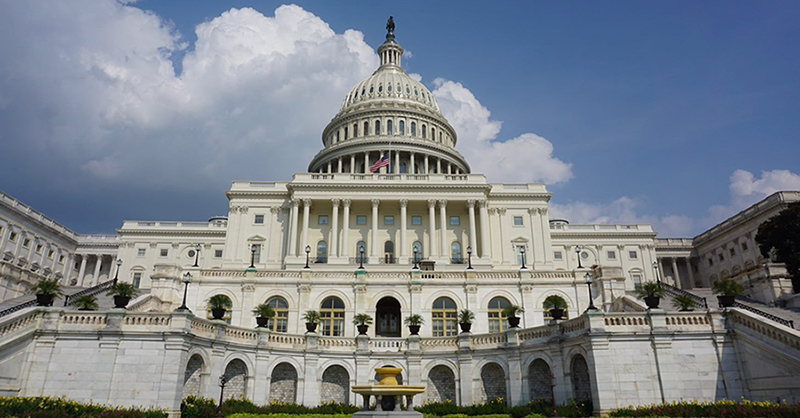Hoskins decision puts US compliance with OECD anti-bribery convention deeper in jeopardy
17 August 2022 23:10 by Samuel Rubenfeld

A recent appellate decision may pull the US further out of compliance with an international anti-bribery agreement, and concerns with the law could require action by Congress or the Supreme Court.
Last week, the US Court of Appeals for the Second Circuit affirmed a judge’s acquittal of Lawrence Hoskins, a former Alstom SA executive, on bribery charges, finding that he had no “agency or employee relationship” with the firm’s American subsidiary.
Though Hoskins worked in Paris for Alstom’s UK subsidiary, he was allegedly responsible for selecting consultants and authorizing the bribe payments they made for the US unit, Alstom Power Inc., in the early 2000s to secure a $118 million contract in Indonesia. (The French parent company, Alstom SA, agreed to a $772 million settlement with US authorities in late 2014.)
Alstom Power Inc. may have controlled the hiring of the consultants and given Hoskins instructions that he followed, but the government had failed to produce evidence supporting a conclusion that he acted under the unit’s control to the point he was its agent, according to the district court’s ruling.
“The government argues that because Hoskins provided [Alstom Power Inc.] with support, he is an agent. But the government cites to no authority that supports such a broad definition of ‘agent’ within the meaning of FCPA,” the appellate majority decided.
However, in a minority opinion dissenting in part, US Circuit Judge Raymond Lohier Jr. raised broader concerns about the future of US enforcement of anti-bribery law.
“It makes little sense to permit the prosecution of foreign affiliates of United States entities who are minor cogs in the crime” while immunizing those who, acting as an agent of the domestic company’s foreign parent, actively participate in the company’s commission of FCPA violations, Lohier said.
The judge said neither Hoskins nor the majority has pointed to any specific language or history suggesting that Congress intended to cover only third-party intermediaries, or to exclude employees such as Hoskins whose responsibility was, at least in part, to help a domestic concern locate and hire bribe-paying intermediaries.
The Hoskins decision represents a setback and a significant check on the US Justice Department’s enforcement of the Foreign Corrupt Practices Act, law firms said in some initial reactions to their clients, though they acknowledged foreign nationals could face prosecution for foreign bribery under other laws. Similar questions are before the US Court of Appeals for the Fifth Circuit in a separate case tentatively scheduled to be argued in October.
The FCPA had been viewed as consistent with the anti-bribery convention of the Organization for Economic Cooperation and Development (OECD). However, an earlier Second Circuit decision in 2018 regarding Hoskins had already led the OECD to consider whether the US violated the anti-bribery convention, and the latest ruling “cannot possibly help in that regard,” Lohier said in his minority opinion.
Under the prior appellate decision, Hoskins couldn’t be found guilty of conspiracy to violate the FCPA, nor could he be held liable for aiding and abetting, Lohier said. That decision, however, had left open a way to prosecute Hoskins for acting as an agent of a domestic concern, an approach the government pursued before a judge threw out the conviction. The appellate majority now “blocks that path as well,” a result the drafters of the FCPA or the OECD convention would not likely have anticipated or intended, according to Lohier.
“If Hoskins cannot be held accountable under an agency theory of liability, then he will evade accountability under the FCPA altogether,” Lohier said. “Such a result also creates an incentive that Congress could not have wanted: US companies will be motivated to organize themselves to avoid exercising control over the employees of foreign affiliated companies who engage in bribery overseas.”
The OECD had summarized the then-pending second Hoskins appeal in its latest peer review of US anti-bribery enforcement, which was released in November 2020. But the first Hoskins appellate decision, which restricted the use of conspiracy charges on foreign nationals in FCPA cases, may be in tension with Supreme Court jurisprudence applying conspiracy law in domestic bribery cases, the OECD said.
The OECD argues that that the Supreme Court has found that conspiracy law is applicable in domestic bribery cases, but that appellate judges have significantly narrowed it in the FCPA context.
“To the extent that recent US case law developments create a divergence between how US courts apply conspiracy law to those who conspire to bribe domestic and foreign officials, the lead examiners consider that this would violate the Convention,” the OECD report said in a commentary section. “The lead examiners recommend that the [OECD] also follow up on whether US courts develop a common approach to how complicity in foreign bribery, including aiding and abetting liability, is applied to defendants not directly subject to the FCPA anti-bribery provisions.”
The US government, in its reply brief in the second Hoskins appeal, had pointed to the OECD report, citing its findings on the first Hoskins appeal in a footnote.
Lohier opined on how the OECD issues would ultimately be resolved. “Congress, or the Supreme Court, will eventually have to clarify the statute’s scope and correct our course,” he said.
Related Articles
No results found
